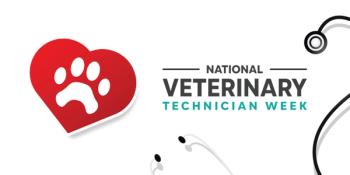
7 deadly sentences
See what sinful statements you may be making-and what you should say instead.
Words can bless or burn you. A carefully crafted compliment could make clients think your practice is heaven-sent. But utter a round-about put down and their view of you could quickly turn hellish. Co-workers are no different. They can have the same hot and cold reactions to your words. To ensure you're creating trust instead of torment, strike these seven statements from your verbal repertoire.
1. Greed
"I want credit for my great idea."
Because of your eco-savvy suggestion of e-mailing clients appointment reminders, you helped rid the practice of excessive paper use. Now everyone's happy: The practice is saving money, your co-workers are saving the Earth, your clients appreciate the new technology, and you, well, you're wondering why a week has rolled by and no one's said thanks.
Why this statement's sinful: Seeking hordes of recognition breeds individualism rather than team cohesiveness, says Kaylin Rikansrud, practice manager at Sumner Veterinary Hospital in Sumner, Wash. "When that starts to happen, you very quickly see a deterioration of working and developing ideas together, and you get a lone-wolf feeling." Sulking because your contribution didn't get enough air play builds resentment, which your team members and clients can sense. And bitter people aren't effective at their jobs.
How to sweeten the sentiment: Working in a team environment, like a veterinary practice, requires unselfishness, says Gina Toman, a Firstline Editorial Advisory Board member and practice manager at Seaside Animal Care in Calabash, N.C. Instead of thinking about what you're personally taking away from a situation or what your own reputation will be, adopt the approach of trying to be helpful to co-workers and clients. And don't forget the golden rule: Do unto others. Remember, you were hurt when your achievements went unmentioned. So be sure to praise team members when they excel. Before you know it, the accolades will be flying in all directions.
2. Pride
"The clinic down the street isn't half as good as our hospital."
It's obvious that you work for the best practice in the area. You even boast the statistics and polo shirt to prove it. Putting down the competition seems like just another way of giving pet owners the facts.
Why this statement's sinful: If you get a price shopper on the phone, you must proceed with caution, Toman says. Resist the urge to point out other practices' flaws because clients could hear your comparison as slander. In the same vein, be wary of joining new clients in bashing the competition. Pet owners might tell you about the awful experiences they had down the road. But you know that clients' interpretations of how their visits went may be different from what actually happened. "If you jump on the bandwagon and speak negatively about another practice, you're actually tearing down yourself," Rikansrud says. "You're showing the client how little character you have." And clients want a practice that strives for professionalism.
How to sweeten the sentiment: Talk up your offerings instead of talking down your competition. You don't need to brag about how great your team is or how many awards your practice has won, but you do need to focus on your offerings. Specifically, tell clients about your services and how they benefit people and their pets. For example, go ahead and mention that your clinic is the only one within a 15-mile radius that carries a CO2 laser that reduces recovery time, Toman says. Play up your specialties to help clients choose a practice in their pets' best interest.
3. Gluttony
"I only work with people I like."
It's Monday morning and you're checking your week's schedule. Disappointment sinks in when you realize they've stuck you with Molly again. You'll be forced to sit through another week of listening to her top 10 reasons why Maine Coons are superior to Persians. You're determined to march into your manager's office and demand she switch your schedule or else fur will fly.
Why this statement's sinful: Too much of anything is too much, even comfort. You'll never grow as a professional if you ditch Molly or any other employee who isn't your favorite. "You're going to learn things from people who aren't exactly like you," says Rikansrud. After all, who says your approach is best? When you're always seething and complaining, you're not able to see a better way—even when it's sitting right next to you.
How to sweeten the sentiment: Look at why there's tension between you and a co-worker and try to get past it, otherwise it will eat you up inside. Does she file records differently than you? Why not hear the logic behind her system? Be willing to listen and learn, Rikansrud says, and you'll become the team member who can work with anyone. Can't pinpoint your problem with Molly? Maybe you haven't given her a fair shot. Get to know Molly, and you might find some common ground. Remember, strained work relationships affect more people than you. Think in terms of what's best for the practice, team, and clients, Rikansrud says. It's the attitude of servitude that'll give you optimal results.
4. Envy
"I wish I got special treatment like the head technician."
The "pet" employee is at it again. She's being awarded extra flexibility in her work schedule, and she's being asked to plan workshops with the owner. You work just as hard, so it's not fair you don't get the same validation.
Why this statement's sinful: They don't call jealousy a monster for nothing. Envy draws divisive lines between team members, which leads to stifled productivity and poor client service. When you're preoccupied with what others are getting, you forget to give your all.
How to sweeten the sentiment: Every position is crafted around a different job description. Although it seems like the head technician is being coddled, she might be doing plenty behind the scenes, Toman says. "You might not understand the work that person has to do in order to get to that superstar status," she says. A deeper, more probable explanation is that you're not meeting your own job description. Those who fall short aren't likely to be rewarded. Assess yourself and fix any problem areas. If you're doing everything right and still not feeling the love, Rikansrud says, management may be to blame.
Feeling neglected by your boss? Do two things. First, keep in mind that some roles are more glamorous than others, but they're all necessary for the team's success. Second, talk to a supervisor. "Oftentimes I find that once employees have a conversation with me, they immediately start to feel better," Rikansrud says, "because they've had the opportunity to get that feeling out and it doesn't just stay trapped in their head every day."
5. Sloth
"We close in five minutes, so come back tomorrow."
The last client just headed out, you've wrapped up all your duties, and you're looking forward to a dinner out with friends. Then Mr. Alvin storms in ranting and raving that his dog Snuggles needs to see a doctor right this minute. Snuggles looks fine to you, so he and Mr. Alvin can wait until the next day.
Why this statement's sinful: Snuggles might not need immediate attention, but Mr. Alvin thinks he does. And brushing off his concern in favor of business hours is lazy client care. Even though you're closing, you still need to tend to pet owners or they'll associate your practice with negativity. "Clients will hear you say, 'I'm sorry, your need isn't convenient for us,'" Rikansrud says. "And you'll lose a huge opportunity to build a strong relationship with that client." Once you damage the client-practice bond, it's difficult to restore.
How to sweeten the sentiment: Tell clients what you can do, not what you can't, Toman says. For example, don't say the regular veterinarian can't see the patient. Instead, explain that you can contact the emergency doctor but the fees might be different. Or suggest that the 24-hour clinic would be able to help Snuggles and you'll be happy to call and let the staff know he's on the way. You can also offer to schedule an appointment first thing tomorrow. In the end, you want to take the time to show your clients that their needs are important, even if it means staying an extra 10 minutes.
6. Lust
"It's too bad all our clients aren't as good as you."
Two categories of clients exist in your head: good and bad. When a particularly good one visits, you want to let her know how valuable she is. And you want everybody else to know too. So you tell her. Out loud. In front of other clients.
Why this statement's sinful: "Clients may smile and say 'thank you,' but the reality is, you just put someone else down," Rikansrud says. The main problem is that this sentence breathes an air of disingenuousness, even if it's well-intended. And the same thing is true when it's said to a co-worker. "If you say, 'You know, I just loved working with you today. It was so much better than when I worked with anyone else,' what you're really saying is, 'Every person I worked with the rest of this week was inferior to you and not as important,'" Rikansrud says.
How to sweeten the sentiment: While you might have a few favorite clients, it's important that all clients know they're valued at your practice, Toman says. "Thank every client," she says. "We forget that they chose us when they could've chosen another practice." But you can still award your all-star clients with a positive comment—one that won't alienate others. For example, if a client brings in a video of her pet coughing to help the team diagnose the problem, Toman suggests saying, "You get the gold star today."
7. Wrath
"It's terrible you won't pay for Fluffy to get heartworm preventive."
You've emphasized how important heartworm prevention is for all pets, especially those that go outside. Even though you've explained the health benefits to the client, he's still resisting. The only possibility left: This guy doesn't care about his cat as much as he should.
Why this statement's sinful: This kind of sentence surfaces when a staff member unleashes personal bias, opinion, or judgment on the client, Rikansrud says. Pressuring clients to make healthcare decisions builds walls between you and the people you're trying to help. "If you're too busy thinking, 'Oh, my God, that's crazy,' you stop listening," Rikansrud says. If you're able to really listen to clients, you might figure out they're misinformed or facing an external fear or pressure.
How to sweeten the sentiment: Your job is to provide pet owners with the facts to help them make educated decisions. Playing the blame game doesn't get you anywhere, but playing 20 questions might. When clients say they won't comply with your recommendations, nicely ask them why. For example, when Fluffy's owner declines your recommendation for heartworm preventive even after you've outlined the risks of infection, make a friendly enquiry: What reservations do you have about heartworm preventives? Maybe the client's cat is difficult to medicate and he's embarrassed about it. By getting to the root of clients' reluctance, you might be able to alleviate their worries. And you might not. But you'll be able to rest assured that you did all you could while still preserving a high level of service.
The devil's in the details when it comes to what you say. So make sure you're uttering upright sentences like "We've never worked together, and that should change" (open-mindedness), "I can see you're swamped, so let me help you finish up that project" (generosity), and "You were right. I was wrong" (humility). With virtuous client and co-worker communication, you'll be able to create righteous relationships with everyone you encounter.
Noelle Radut is a freelance writer living in Chicago. Please send your questions and comments to
Newsletter
From exam room tips to practice management insights, get trusted veterinary news delivered straight to your inbox—subscribe to dvm360.






